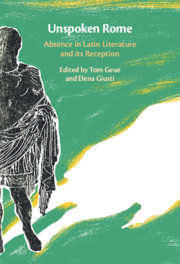Afterword - Lights Out
Published online by Cambridge University Press: 03 September 2021
Summary
Catullus’ poem 51, paradoxically, would be incomplete without its famous lacuna: the gap in 51.8 functions as an acoustic channel through which the sonorous presence of Sappho and her lyric poetry is evoked. This paper shows how this ‘epiphanic’ textual lack enables the readers to experience the past in its sublimity, or to feel themselves connected to a chain of voices and silences. Catullus’ lacuna, accordingly, is interpreted as an empty monument of the ‘absent presence’ of the Sapphic voice which is being simultaneously silenced and reanimated by the endlessly iterable events of reading. In that regard, Catullus’ ‘translation’ is a realization of Walter Benjamin’s imperative included in ‘The Translator’s Task’, awakening the ‘echo’ of the Sapphic original. At the same time, the lacuna – labelled here as Catullus’ ‘Black Square’ – is envisioned as an inherent part of the poetic play between Calvus and Catullus in poems 50 and 51, to be supplemented by Calvus’ textual or bodily presence. In this sense, the 30 or so conjectural supplements of 51.8 in the textual history of the poem – among others, the famous vocis in ore – do nothing more than take on the role of Calvus, and write a palimpsest of absences and presences.
- Type
- Chapter
- Information
- Unspoken RomeAbsence in Latin Literature and its Reception, pp. 324 - 333Publisher: Cambridge University PressPrint publication year: 2021

